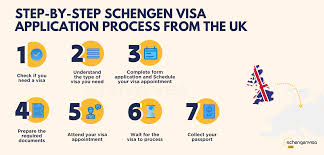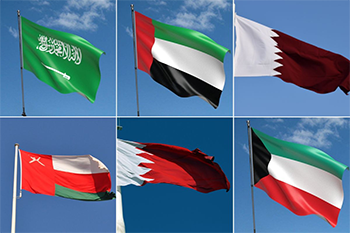
The rise in visa rejection rates is a global trend affecting many countries, but the impact on Pakistani travelers has been particularly pronounced. The statistics from 2023 and 2024 show that a significant number of Pakistani visa applications are being denied. For Pakistani travelers, this reality means that a visa application is not just a formality; it's a critical process that requires meticulous attention to detail. The high rejection rate for a Schengen visa for Pakistani citizens is especially notable, with over half of all applications being turned down. Similarly, the UK also saw a rejection rate of around 40% for Pakistani applicants. These numbers are a stark reminder of the need for a comprehensive and flawless application.
: Visa rejection is often a result of the applicant's failure to convince the visa officer of their genuine intent to visit and return. The burden of proof lies entirely with the applicant.
Financial Instability: The Root of Many Rejections
One of the most frequent reasons for visa rejection is inadequate proof of funds. Visa officers must be convinced that the applicant has sufficient money to cover all trip expenses without becoming a financial burden on the host country. Many Pakistani travelers fail to meet this crucial requirement, leading to a high rate of visa rejections.
What to Avoid Regarding Finances
Sudden Large Deposits: A common mistake made by Pakistani travelers is depositing a large sum of money into their bank account just before applying for a visa. This is a major red flag, as it suggests the funds are not genuinely yours or that you are trying to mislead the embassy. Consulates look for a consistent financial history over a period of at least three to six months.
Minimal or Inconsistent Bank Balance: A bank account with a low or fluctuating balance that doesn't align with the estimated cost of your trip will be viewed with suspicion. Your bank statement should clearly show a stable source of income and enough savings to support your travel plans.
Lack of Comprehensive Proof: Simply providing a bank statement is often not enough. You should submit multiple documents to demonstrate your financial stability. This includes salary slips, a letter from your employer confirming your income and position, and income tax returns. Failing to provide this holistic view of your finances is a major reason for visa rejection for Pakistani citizens.
Weak Ties to Pakistan: The "Flight Risk" Factor

A visa officer's primary concern is that you will not return to your home country after your visa expires. They evaluate your "ties to your home country" to assess this risk. For Pakistani travelers, demonstrating strong family, professional, and financial ties is paramount. This is a key area where many visa applications for Pakistani citizens fall short.
How to Prove Strong Ties to Pakistan
Stable Employment: Having a secure job with a long tenure is a powerful indicator of your commitment to returning. A well-drafted employment letter from your company, an employment contract, and recent salary slips are essential. Pakistani travelers who are unemployed or have just started a new job are at a higher risk of rejection.
Family Commitments: Your family situation can act as a strong tie. Providing a Family Registration Certificate (FRC) and copies of the ID cards of your spouse and children can demonstrate your family responsibilities.
Property and Assets: Owning property, a business, or other significant assets in Pakistan is solid evidence of a reason to return. It shows that you have a significant financial stake in the country.
A Clear Itinerary: A vague or poorly planned travel itinerary can be a red flag. It may suggest that the applicant has no genuine purpose for the trip and is using the visa to overstay. A detailed plan, with confirmed hotel and flight bookings, is crucial for a successful visa application.
Documentary Disasters: The Risk of Incompleteness or Fraud
Even if you have the financial means and strong ties, a single mistake in your documentation can lead to a visa rejection. Consular officers are highly trained to spot inconsistencies and fraudulent documents. Submitting a flawless and complete application is non-negotiable for any Pakistani traveler.
Common Documentation Mistakes to Avoid
Incomplete or Incorrect Forms: A simple spelling error or a missing piece of information on your application form can be grounds for rejection. Always double-check every field for accuracy and ensure that the information matches your supporting documents.
Forged or Fake Documents: This is the most serious mistake you can make. Submitting fake bank statements, counterfeit invitation letters, or forged employment letters will lead to an automatic rejection and a potential long-term visa ban. For Pakistani travelers, this can be a permanent roadblock to international travel.
Expired or Damaged Passport: Your passport must be valid for at least three to six months beyond your intended departure date and must be in good condition. A passport that is torn or has missing pages will likely not be accepted.
Lack of Travel Insurance: For many countries, especially in the Schengen Area, travel insurance with a minimum coverage is a mandatory requirement. Failure to provide proof of a valid insurance policy is a common reason for visa rejection.
A table summarizing some of the key documentary requirements is helpful:
| Document Type | What to Provide | Common Mistakes |
|---|---|---|
| Passport | Valid for 6+ months, at least 2 blank pages. | Damaged, torn, or expired passport. |
| Financial Proof | 6-month bank statements, salary slips, tax returns. | Sudden, large deposits; low balance. |
| Employment | Letter from employer, contract, pay slips. | Vague letter; new or unstable job. |
| Travel Plan | Confirmed flight tickets and hotel bookings. | No reservations; vague itinerary. |
| Visa Form | Duly filled and signed with accurate info. | Mismatched data; incomplete fields. |
Navigating Specific Visa Types: Schengen, UK, and Beyond

The reasons for rejection can be specific to the visa type and country. For Schengen visa for Pakistani citizens, the rejection rate is particularly high for countries like Poland, Greece, and Sweden. For UK visa applications, a significant number of rejections stem from an inability to prove a genuine visitor status and sufficient funds.
Schengen Visa: Many rejections are based on "insufficient justification for the purpose and conditions of the intended stay." This means your application failed to clearly explain why you are traveling and how you will support yourself. To avoid this, provide a detailed day-to-day itinerary and ensure your bank statements reflect the cost of your trip.
UK Visa: A common reason for refusal is a lack of adequate evidence for the provided information. UK visa immigration authorities are strict about validating every claim. For example, if you state you have a specific job, you must provide a detailed letter from your employer and recent payslips to back it up. A new job or a low salary is often seen as a red flag.
US Visa: Rejections are often tied to Section 214(b) of the Immigration and Nationality Act, which presumes every applicant is an intending immigrant. The burden is on you, the applicant, to prove that you have strong ties to Pakistan and will return after your visit.
Final Thoughts: A Proactive Approach to Visa Application
The rising visa rejection rates are a reality that Pakistani travelers must confront. However, by understanding the common reasons for rejection and adopting a proactive, detail-oriented approach, you can significantly increase your chances of a successful outcome. The key is to be truthful, transparent, and meticulous in your preparation. A strong visa application is built on a foundation of solid evidence and a clear, believable narrative about your travel plans and your unwavering ties to your home country. By avoiding the common pitfalls discussed in this article, you can turn the tide and make your dream of international travel a reality. 🌍✈️
;More Travel News
-
 20-Mar-2025Service Charges of Munazzamat for Hajj 2025
20-Mar-2025Service Charges of Munazzamat for Hajj 2025 -
.webp) 02-May-2025UK Welcomes More International Students: A Positive Sign for Travelers and the Economy
02-May-2025UK Welcomes More International Students: A Positive Sign for Travelers and the Economy -
 19-Mar-2022PIA International Increased Flight Fares for Umrah
19-Mar-2022PIA International Increased Flight Fares for Umrah -
 20-Feb-2023Women Security Guards to be Deployed at Masjid Nabawi
20-Feb-2023Women Security Guards to be Deployed at Masjid Nabawi -
 16-Mar-2021Top 10 Best Sellers and Famous Pakistan Tour Packages
16-Mar-2021Top 10 Best Sellers and Famous Pakistan Tour Packages -
 08-Sep-2025Book Your 2025 Umrah Package Today: A Guide to Your Spiritual Journey
08-Sep-2025Book Your 2025 Umrah Package Today: A Guide to Your Spiritual Journey -
 19-Apr-2025Saudis target more than 2.5 Million Seats for Umrah flights by 2025
19-Apr-2025Saudis target more than 2.5 Million Seats for Umrah flights by 2025 -
 15-Nov-2025UAE and Bahrain Test One-Stop Border System on GCC Unified Visa
15-Nov-2025UAE and Bahrain Test One-Stop Border System on GCC Unified Visa -
 24-Feb-2025Private Hajj Packages 2025: What You Need to Know Before Booking
24-Feb-2025Private Hajj Packages 2025: What You Need to Know Before Booking -
 24-Mar-2022Permission of Itikaf after two year hiatus at the Two Holy Mosques
24-Mar-2022Permission of Itikaf after two year hiatus at the Two Holy Mosques -
 24-Aug-2021Know How You Can Get Travel Insurance By Your Credit Card
24-Aug-2021Know How You Can Get Travel Insurance By Your Credit Card -
 14-Oct-2019How Much ZamZam is Allowed
14-Oct-2019How Much ZamZam is Allowed
